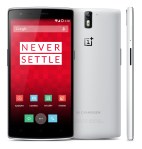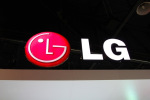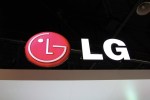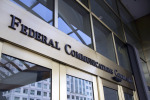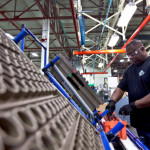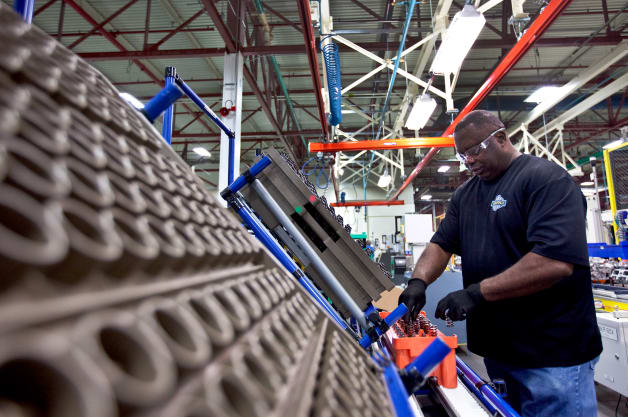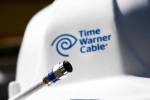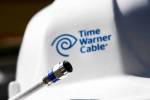The OnePlus One invites will soon start rolling out
The “Never Settle” Android smartphone has an exciting price and even more interesting specs, but OnePlus doesn’t appear to have what it takes to meet the impressive demand, or at least not for the time being. That’s why the company is using an invite system, which will be the only way to buy a OnePlus One handset for now. The company on Saturday announced that it’s finally ready to roll out the first “major batch of invites,” although it did not provide an actual release date, saying the invites are coming “soon.”
Read more here: Boy Genius Report
Apple reaches a major patent truce with Google… but it’s still going to keep suing Samsung
The great mobile patent wars are finally coming to an end, at least as far as battles between Google and Apple are concerned. Per The Wall Street Journal, the two companies announced on Friday night that they were dropping all remaining patent suits that they have against one another and instead work to push for reforms in United States patent law. The new patent truce doesn’t mean the two companies will start licensing one another’s patents, however, and Apple says that the truce won’t change anything when it comes to its ongoing lawsuits against Samsung even though its last effort at squeezing money from the Korean smartphone titan was not nearly as successful as it had hoped. Even so, the mutual disarmament between Apple and Google seems to indicate that the “holy war” that Steve Jobs wanted to wage against Google has now come to an end.
Read more here: Boy Genius Report
Incredible video shows MIT researchers making fresh water out of fog in the middle of a desert
Living in the desert no longer has to mean being parched for drinking water. MIT has posted a video this month that shows how some researchers from its School of Engineering are working with researchers at the Pontificial University of Chile in Santiago to design a system for collecting fresh drinking water from fog that regularly rolls through Chile’s otherwise arid coastal region.
Read more here: Boy Genius Report
Tech companies still hate the FCC’s net neutrality plan
Federal Communications Commission chairman Tom Wheeler kept insisting that people would be more open to his plan once they actually read it. However, now that it’s been unveiled and made available to everyone, no one likes it any better. The Wall Street Journal notes that Amazon and Netflix have both released official statements reiterating their opposition to letting ISPs create “fast lanes” that would let them charge content providers more to ensure their data gets delivered more quickly.
Read more here: Boy Genius Report
Cable companies just had their best quarter since 2011
Cable companies are losing cable subscribers who have decided to cut the cord, but it now appears they are losing these customers at a much slower rate. According to IHS, cable companies lost 132,000 subscribers in the first quarter of 2014, which marks the least number of customers cable has shed since the first quarter of 2011. That figure was also down from the 265,000 subscribers pay TV companies lost in the first quarter last year.
Read more here: Boy Genius Report
More key LG G3 features revealed in new leaks
LG is getting ready to launch its next flagship handset, the LG G3, this month, much earlier than initially expected. The company is apparently trying to both better compete against the recently released Galaxy S5 and HTC One (M8), and also to avoid direct competition with the iPhone 6 that will launch next quarter, which is when the G3 was expected to hit stores. Thus, it’s not surprising to see more key details revealed about the handset, with just over a week to go until the G3 media event kicks off.
Read more here: Boy Genius Report
New campaign aims to make surfing the web miserably slow for FCC employees
If there’s one good thing that’s come from the Federal Communications Commission’s hugely controversial to allow for Internet “fast lanes,” it’s that it’s inspired several brilliant high-profile pranks aimed at giving the FCC a taste of its own medicine. Wired now reports that Portland-based software developer Kyle Drake has created code that people can put on their websites that will detect whenever someone with an FCC-associated IP address is trying to access their page and then slow down their loading times to dial-up speeds. When the FCC employees try logging onto one of the websites that has added the code, they will be given a message telling them that they will only be able to load it faster if they fork over $1,000 to get their own fast lane. Whether this will convince anyone at the FCC to change their positions on creating Internet fast lanes is up for debate, but we do have to give Drake a tip of the cap for creativity.
Read more here: Boy Genius Report
Check out this slick iPhone case that doubles as a secondary battery
Augment is the name of a new case and charger combo for the iPhone that is seeking funding on Kickstarter. Unlike existing case solutions that help users prolong the battery life on their iPhones in addition to offering damage protection, Augment proposes an interesting new take: a modular design that allows users to both enjoy a slick, protective iPhone case, and an ultra-portable external secondary iPhone battery. The two devices – the Augment Case and Augment Charge – can be connected when extra battery life is needed, and offer users a 60% extra battery charge.
Read more here: Boy Genius Report
Auto suppliers call GM the worst car company to work with
Filed under:
Among automakers with a big North American presence, General Motors is the worst to work for, according to a new survey from Tier 1 automotive suppliers, conducted by Planning Perspectives, Inc.
The Detroit-based manufacturer, which has been under fire following the ignition switch recall and its accompanying scandal, finished behind six other automakers with big North American manufacturing operations. Suppliers had issues with trust and communication, as well as intellectual property protection. GM was also the least likely to allow suppliers to raise their prices in the face of unexpected increases in material cost, all of which contributed to 55 per cent of suppliers saying their relationship with GM was “poor to very poor.”
GM’s cross-town competitors didn’t fare much better. Chrysler finished in fifth place, ahead of GM and behind Dearborn-based Ford, which was passed for third place this year by Nissan. Toyota took the top marks, while Honda captured second place.
PPI also surveyed suppliers of Volkswagen, BMW and Mercedes-Benz, each of which has considerably smaller manufacturing presence relative to the North American and Japanese brands (there are only three US factories between the three of them). Mercedes and VW were ranked behind GM, while BMW would have been just behind Toyota.
According to Reuters, this survey serves to illustrate a big issue facing American manufacturers – Japanese brands aren’t just on good terms with suppliers, but their relations are actually improving. PPI boss John Henke said the popularity of Toyota and Nissan among suppliers increased considerably, indicating that we “could be entering an era in supplier relations that doesn’t bode well for the US Big Three.”
Auto suppliers call GM the worst car company to work with
Auto suppliers call GM the worst car company to work with originally appeared on Autoblog Canada on Fri, 16 May 2014 17:00:00 EST. Please see our terms for use of feeds.
Permalink | Email this | Comments
Read more here: Ford News
Major FCC study finds cable bills have been rising at over triple the rate of inflation
Looking for a reason why people hate their cable companies? Well, there are likely several reasons but one of them is undoubtedly the constant stream of price increases and fees that are taking out more and more of consumers’ wallets every year. A major new study from the Federal Communications Commission has found that basic cable prices increased by 6.5% throughout 2012 while expanded basic cable prices rose by 5.1% over the same period. In contrast, the general rate of inflation as measure by the Consumer Price Index throughout 2012 was just 1.6%, meaning that basic cable prices rose at more than four times the rate of inflation in 2012 while expanded basic cable prices rose by more than three times the rate of inflation.
Read more here: Boy Genius Report







